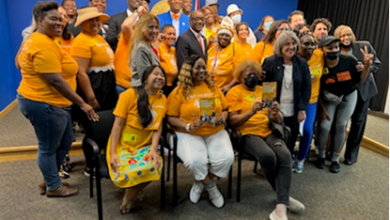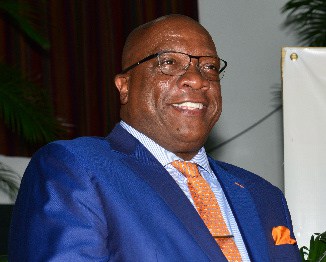DISSIN’ THE DIASPORA, AGAIN
By: Bevan Springer
NEW YORK – Communication is the basis for life. When communication fails, abnormality sets in.
This principle was demonstrated this week in New York with a decision, seemingly influenced by the Caribbean diplomatic corps, to retain the services of a “mainstream” public relations firm to communicate to members of the Diaspora and the Black media.
The event was the Conference on the Caribbean which attracted several Caribbean Heads of State and cabinet ministers who arrived in New York rather surprised to hear that some local media operatives were considering a boycott of the meetings engineered by the respected Harlem Congressman Charles Rangel who chairs the powerful Ways and Means Committee.
The boycott suggestion attributed to Guyanese broadcaster Bobby Vieira, general manager of One Caribbean Radio, and supported by some media colleagues, alarmed several of the visiting Heads who must have been concerned about a potentially hostile response from the Diaspora for an important Diaspora-centered event that had been so poorly publicized throughout the Caribbean-American community.
Thankfully, all things typically work together for good and the protests of an outraged broadcaster, published on the popular internet-based CaribbeanWorldNews.com, may have brought greater attention to the conference and energized the public relations agency in question to ramp up their communications activities, judging from the flurry of 11th hour media advisories that followed this critical article. Notably, another critical story appeared in the Miami Herald on the conference’s opening day.
While accompanying a delegate to the meeting on Thursday, a diplomat expressed a measure of disgust with the Caribbean World News article. As a champion for reversing the inverted prejudice from numerous Caribbean government and private sector organizations against Diaspora professionals, I had to distance myself from the boycott call, but nevertheless point out that decision makers consistently show contempt towards Black, Hispanic and Caribbean professionals in the marketplace.
This is a topic about which I have extensively written and discussed on air over the years and a subject that was fully ventilated at last month’s Caribbean Media Exchange on Sustainable Tourism (CMEx), held in San Juan, Puerto Rico.
Admittedly some progress has been made, but too little to write about, except to say that the island of Jamaica is a shining light within CARICOM (Caribbean Community) when it comes to securing the services of the Diaspora, while still falling short of an acceptable standard.
Speaking at a recent Diaspora conference in Jamaica, Prime Minister Bruce Golding is reported to have said that often when the country needed an expert to solve a problem the tendency was to look everywhere except among “our Jamaican people.” He said more needed to be done in order to open a line so that the government can know who is overseas, and who is “here in Jamaica” that has an interest in helping, as well as the ability to help. He said the Diaspora has a spirit of goodwill that is powerful, on which a value could not be placed and was something that Jamaica should take advantage of.
My conversation with the New York-based diplomat surprisingly revealed – or maybe not so surprisingly – that our region’s representatives in Manhattan were unaware of any Caribbean public relations firms who could communicate to their own people and whose services could be retained for the Caribbean conference.
What a shame, I thought, underscoring the pervasive ignorance across the region and in the marketplace about the professional skills within our expatriate communities – an ignorance that perpetuates the barrel mentality – perhaps that’s what Caribbean-Americans are limited to contributing in their eyes.
Sadly, those leaders and organizations who are aware of the depth of talent in the Diaspora still remain attracted to the Madison Avenue mindset which rewards companies, some of which burn more energy and resources on pitching clients and on overhead expenditure than they do on meeting client needs once the lucrative contracts have been inked.
Will we ever see a change to this affront to Caribbean identity and independence? My fervent prayer is that we will sooner than later.
It starts with communication. Maybe there is a silver lining in all of this.
The dialogue will surely continue.

Bevan Springer, the Director of Counterpart International’s Caribbean Media Exchange on Sustainable Tourism (CMEx), is a journalist and communications advisor.


